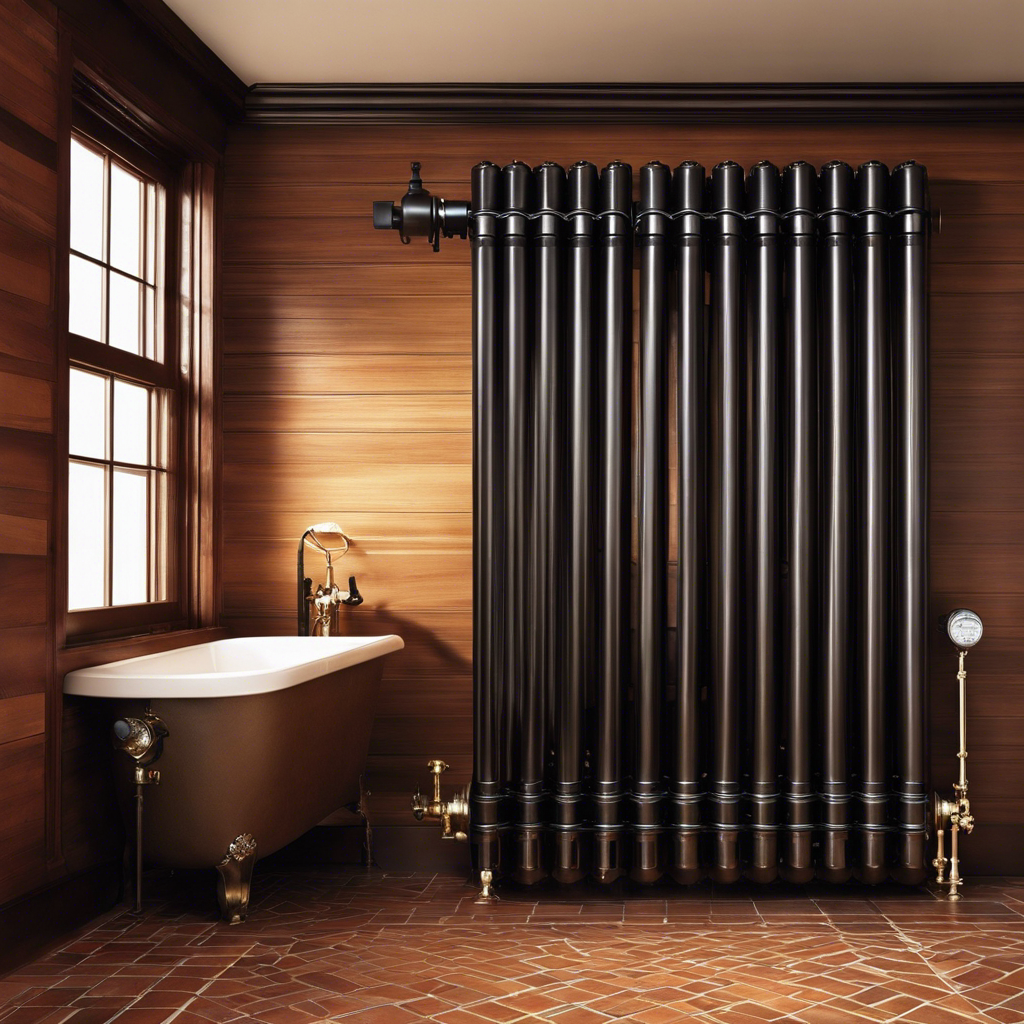Imagine your home as a cozy sanctuary, where warmth envelops you like a comforting embrace. Just as there are different ways to experience comfort, there are also various types of heating systems that can keep your home snug and inviting.
From forced-air systems that blow warm air through vents, to radiant systems that emanate gentle heat from the floor, each option offers its own unique advantages.
So, why settle for a one-size-fits-all approach when you can explore the world of heating systems and discover the perfect fit for your home?
Key Takeaways
- Forced-air heating systems are widely used and efficient for distributing warm air through ducts and vents.
- Radiant heating systems directly transfer heat to objects in the room, eliminating drafts and hot or cold spots.
- Electric heating systems are popular and efficient, converting 100% of electricity into heat, but can be more expensive to operate in areas with high electricity costs.
- Geothermal heating systems utilize natural heat from the Earth’s core, have a low carbon footprint, and can provide both heating and cooling.
Forced-Air Heating Systems
Forced-air heating systems, also known as central heating systems, are widely used in residential and commercial buildings for their efficient and effective distribution of warm air throughout the space.
These systems operate by heating air in a central furnace and then distributing it through a series of ducts and vents.
One of the key advantages of forced-air heating systems is their energy efficiency. They can be equipped with high-efficiency furnaces that convert a significant portion of the fuel into heat, reducing energy waste and lowering utility bills.
Additionally, these systems offer a relatively straightforward installation process. A professional heating contractor can install the necessary components, including the furnace, ductwork, and vents, ensuring a seamless and efficient heating system for your home or business.
Radiant Heating Systems
Radiant heating systems, also known as underfloor heating systems, offer a comfortable and efficient way to warm your home or office space. Unlike forced-air systems that rely on blowing hot air through ducts, radiant heating works by transferring heat directly to the objects in a room, including the floor, walls, and furniture. This method creates a more even and gentle heat distribution, eliminating the drafts and hot or cold spots often experienced with other heating systems.
The installation process of radiant heating systems involves laying a network of pipes or electric heating elements beneath the floor. These pipes or elements are then connected to a central heating source, such as a boiler or a heat pump. As the heated water or electric current flows through the pipes, it radiates heat upwards, warming the room from the ground up.
One of the major advantages of radiant heating systems is their energy efficiency. Since they don’t rely on blowing air, they don’t waste energy on heat loss through ducts. Additionally, radiant heating systems can be zoned, allowing you to control the temperature in each room separately. This further enhances energy savings by avoiding heating unoccupied spaces.
Another benefit of radiant heating is the comfort it provides. With no forced air blowing around, there’s less circulation of dust, allergens, and pollutants. This can be particularly beneficial for individuals with respiratory issues or allergies. Additionally, radiant heating creates a more even heat distribution, eliminating the discomfort of cold feet or hot spots.
However, there are some drawbacks to consider. The installation process of radiant heating systems can be more complex and costly compared to other heating systems. It may require professional assistance and involve some disruption to your home or office space during installation. Additionally, if repairs are needed, accessing and fixing the pipes or heating elements can be challenging.
Electric Heating Systems
Electric heating systems are a popular and efficient choice for heating homes and offices. One advantage of electric heating systems is their energy efficiency. Unlike other heating systems that rely on fuels like gas or oil, electric heating systems convert 100% of the electricity into heat, resulting in minimal energy wastage. This can help reduce energy consumption and lower utility bills.
Additionally, electric heating systems are easy to install and require little maintenance. They can be controlled with precision, allowing you to adjust the temperature in each room individually.
However, there are also some disadvantages to electric heating systems. They can be more expensive to operate compared to other heating systems, especially in areas with high electricity costs. Furthermore, electric heating systems may not be suitable for larger spaces as they might struggle to provide sufficient heat.
It’s important to consider these factors when choosing the right heating system for your home or office.
Geothermal Heating Systems
Geothermal heating systems utilize the natural heat from the Earth’s core to efficiently warm homes and offices. This type of heating system offers several benefits. Firstly, it’s an environmentally friendly option as it relies on renewable energy. Geothermal heating systems have a low carbon footprint and reduce greenhouse gas emissions. Additionally, they can provide both heating and cooling, making them versatile and cost-effective.
The installation process for geothermal heating systems involves drilling deep into the ground to access the earth’s heat. Pipes are then installed in the ground and filled with a heat transfer fluid. This fluid absorbs the heat from the earth and carries it to a heat pump located inside the building. The heat pump then distributes the heat throughout the space, ensuring a comfortable living or working environment.
Boiler-Based Heating Systems
One popular choice for heating systems is the use of boiler-based technology, which offers efficient and reliable heating for homes and businesses alike.
Boiler-based heating systems have several benefits. Firstly, they provide consistent and even heat distribution throughout the space, ensuring a comfortable environment in every room. Additionally, boilers are known for their high energy efficiency, resulting in lower energy bills and reduced carbon emissions.
Maintenance tips for boiler-based heating systems include regular inspection and cleaning of the boiler, checking and replacing any damaged or worn-out parts, and ensuring proper circulation of water and pressure levels.
It’s also important to schedule annual professional servicing to ensure optimal performance and to address any potential issues before they become major problems. By following these maintenance tips, you can maximize the lifespan and efficiency of your boiler-based heating system.
Frequently Asked Questions
Can I Use a Forced-Air Heating System in a Large Commercial Building?
Yes, you can use a forced-air heating system in a large commercial building. It provides efficient heating and allows for easy control of temperature. However, consider the benefits of radiant heating systems in homes as well.
How Long Does It Take for a Radiant Heating System to Warm up a Room?
It typically takes a radiant heating system about 30 minutes to warm up a room. The efficiency of these systems lies in their ability to heat objects directly, providing consistent, comfortable warmth. Underfloor heating offers additional benefits, such as even heat distribution and energy savings.
Are Electric Heating Systems Energy-Efficient Compared to Other Types of Heating Systems?
Electric heating systems are indeed energy-efficient compared to other types. They offer cost effectiveness and provide warmth efficiently. You can enjoy the benefits of lower energy bills and a comfortable living space with an electric heating system.
Can Geothermal Heating Systems Be Installed in Any Type of Property?
Geothermal heating systems can be installed in most properties. The installation process involves drilling boreholes and installing ground loops. The benefits of geothermal heating systems include energy efficiency, cost savings, and environmental friendliness.
What Are the Advantages of Using a Boiler-Based Heating System Over Other Types of Heating Systems?
The advantages of using a boiler-based heating system over other types include efficient heat distribution, better control of temperature, and quieter operation. Compared to forced air systems, boilers offer more consistent warmth and a cozy, comforting atmosphere.


